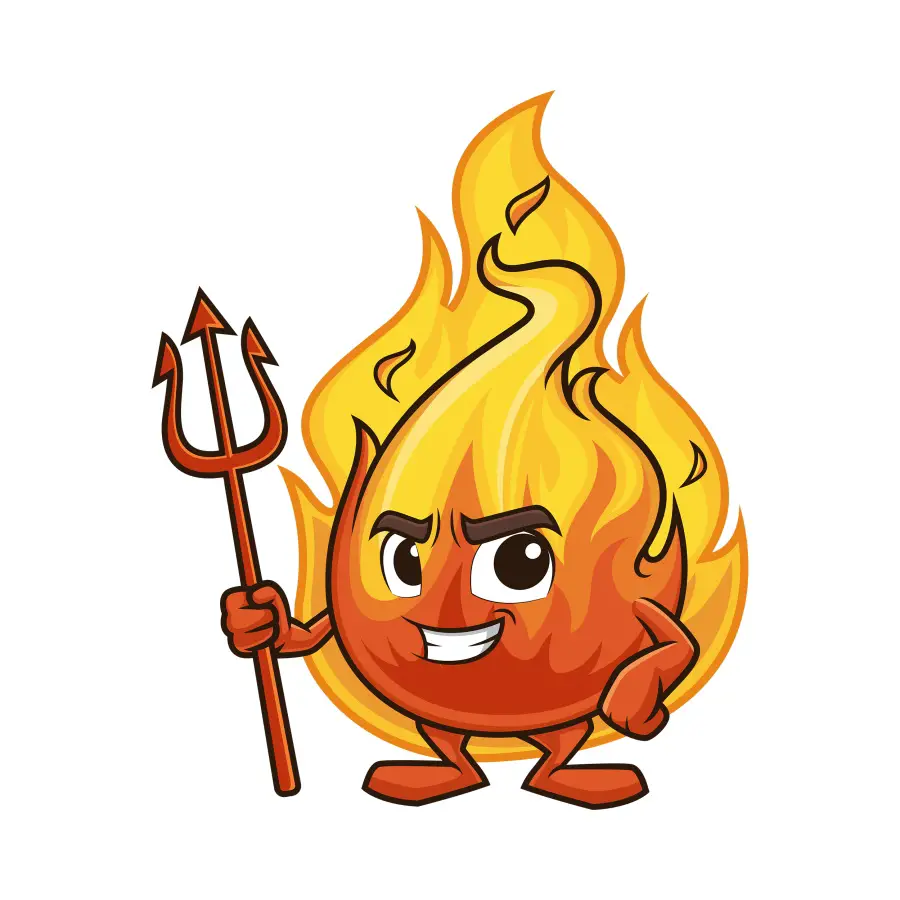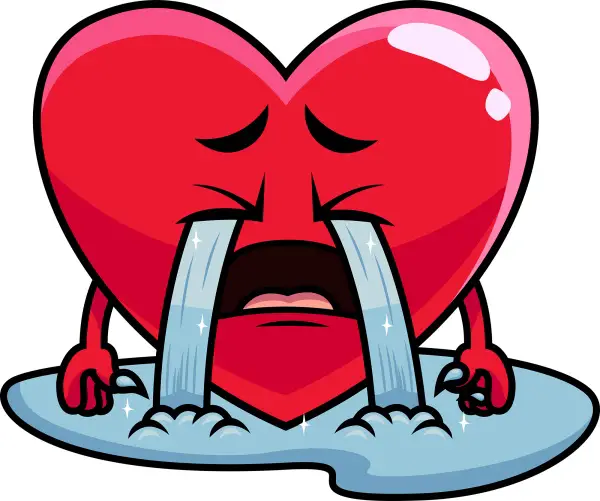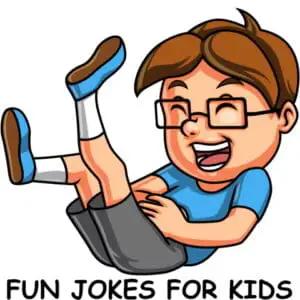From K is for Knifeball to Pat the Zombie (both available on Amazon), dark humor has invaded classic children’s literature, but does that mean it’s for kids then? And what about crude and cruel humor? In fact, what is cruel humor compared to dark humor (and crude humor), and is any of it kid-friendly or belong in their bedtime tales?
Cruel humor offends on purpose for laughs. It first manifests as children make fun of others and get a positive response, albeit laughter, social elevation, or other. If not corrected, then children may become adults with a warped sense of humor, finding comedy in others’ pain and misfortune.
As a teacher, I’ve witnessed the natural cruelty of kids who gravitate to using humor as a weapon against their peers, and understand just how vital it is to teach not only how to use humor appropriately, but why.

We all understand the playground bully concept, whether we were bullied as kids, or ‘the bully.’ And it’s clear as we step back and look at the context, that usually it started as some sort of misguided attempt at being funny. This is cruel humor at it’s genesis.
One way to build humor with your kids is to use it strategically through routines or regular activities. For instance, our Fun Jokes For Kids Coloring Book is a great tool for embedding humor through kid-friendly activity.
In this article, I’ll explain what is meant by cruel humor, how it relates to the trend of dark and crude humor, and suggestions on how to deal with all of this in a kid-friendly way. I’ll also answer if cruel humor is ever okay for kids.
Contents
What is cruel humor?

Let’s first make sure we have a clear understanding of ‘cruel humor’. What is cruel humor, after all?
Cruel humor intentionally hurts or offends for comedic effect. It is a joke that deliberately belittles or makes fun of a specific target for laughs. It is often synonymous with dark humor, or confused with crude humor, and is also commonly racist, sexist, or at the least, stereotypical.
Cruel: disposed to inflict pain or suffering; devoid of humane feelings
Merriam-Webster
When I was a teacher, I often explained unfamiliar words or terms to students by giving examples or other words that mean the same and opposite.
- Synonyms (similar words in meaning) for ‘cruel’ are: brutal, barbaric, atrocious, vicious, sadistic, and inhuman
- Antonyms (opposites) for ‘cruel’ are: goodhearted, compassionate, kind, and sympathetic
When I put it like this, most all students could easily understand why and how ‘cruel’ isn’t a good thing to be. However, they didn’t as easily grasp exactly when it was they were being cruel or when humor was cruel. Let’s look at some further examples.
Cruel Humor Examples
Kids, and even adults, learn by examples. Sometimes we don’t like or dislike something until we see it in someone else. So is the case with cruel humor. Sometimes kids don’t understand that a particular humor (i.e. ‘joke’) is cruel until they witness it from someone else, often at their own expense. Then all of a sudden it’s crystal clear.
- How To Explain Cruel Humor to a Toddler: Give him a toy and then yank it back, and laugh. They won’t think it’s funny, and it isn’t. After, explain how it’s not funny when they do this to a friend or sibling either. Keep your explanation simple, concise, and quick.
- Cruel Humor Example for An Elementary-Aged Kid: Show a clip from SpongeBob SquarePants (Season 2 Episode 11) in which SpongeBob enjoys comedic success at the expense of friend, Sandy Squirrel. I guarantee your 3rd-5th graders will ‘get it’ right away!
- Cruel Humor Explained by a Tween/Teen: Most teens are sensitive to personal humiliation or others getting picked on. You can start a conversation with your tween/teen about a time they’ve seen this happen to someone else (it’s usually more difficult to get them to personally admit to being made fun of). Once they are hooked, you can get them to explain why cruel humor isn’t appropriate, letting them lead the discussion and thus, take ownership of figuring it out themselves.
Also check out these articles on humor:
- Does Forced Humor Work With Kids?
- The Lowest Form Of Humor- Puns, Sarcasm, Or Shock (Ranked)
- 6 Things That Determine Sense of Humor
How is cruel humor different from dark humor?
It’s also important that kids understand how cruel humor is both similar to and different from dark humor. So what exactly is cruel humor as it relates to dark humor?
Cruel humor is similar to dark humor because both are generally negative. They often use sarcasm or insults to be funny. However, dark humor isn’t always about pain or the misfortune of others. Cruel humor is intentionally hurtful, but dark humor is more about finding humor in a twisted way.
Dark humor pokes fun at solemn events like funerals, wars, and crimes. It’s finding the ‘funny’ in un-funny situations. The Holocaust isn’t funny but ‘dark humor’ will find something funny in this extremely tragic historical event.
But to be clear, cruel humor makes fun of a person; it’s willfully causing someone to feel pain, offense, or hurt feelings in order to create comedy. For cruel humor to work though, others must laugh or the person using it feels the comedic effects of humor him or herself.
Let’s consider some other examples of dark humor in the next section.
Dark Humor Examples
It’s not too difficult to find dark humor examples, as it’s become quite the trend in comedy today. It is, however, very tricky to find examples that aren’t also vulgar or too offensive to include on an informational blog like this one.
One example of a Bill Burr sketch illustrating ‘dark humor’ is about how no one has the name Hitler. He opines ‘how is that possible’ and then, how bad someone has to be to wipe out an entire last name.
Dark Humor is also known as Black Comedy.
- Popular Comedians Today that Are Known for Dark Humor: Bill Burr; Sascha Baron Cohen; Anthony Jeselnik; Ricky Gervais; Jim Carrey; Larry David; and Louis CK
- Popular Comedies Today that Commonly Show Dark Humor: Family Guy; The Simpsons; It’s Always Sunny in Philadelphia; The Office (British); Rick and Morty; Curb Your Enthusiasm; and Arrested Development
Although, to be clear, with the exception of maybe The Simpsons, none of the dark comedies are kid-appropriate or recommended by me. Your tweens and teens might be able to watch some, but I highly suggest supervision especially with tweenagers, so that you can talk about it together.
And if you do choose to watch together, I think a good way to do this is with YouTube clips, so that you can control the narrative better.
What’s the difference in cruel humor and crude humor?
But there is another kind of humor that’s often lumped in with cruel humor and that’s ‘crude humor’. How is crude humor similar or different from cruel humor? What do kids need to know?
Cruel humor isn’t exactly the same as crude humor, though they can overlap in their attempts at comedy. Crude humor is vulgar, rude, and/or disrespectful. Cruel humor may incorporate these tactics but doesn’t have to, and crude humor isn’t always cruel. Neither kind of humor is appropriate for kids.
- Cruel humor makes fun of others or causes offense and pain on purpose to be funny.
- Crude humor is gross, disrespectful, and often uses foul language or cursing in their comedy.
Crude Humor Explained
Crude comedians are often known as comedians ‘who push the envelope’ or make others uncomfortable as they perform their acts.
One example of a comedian known for crude humor is Ricky Gervais, British comedian and actor (he was also listed in the dark humor section above). He infamously parodied and made fun of celebrities when he hosted the 2020 Golden Globes. He literally called them out on their pretentious and self-righteous ways at an event to meant to honor them.
Another event that ‘pushes the envelope’ or can be considered crude humor is ‘a roast’. The most famous is the New York Friars Club in which famous people, celebrities, politicians, and comedians are made fun of, in an event to seemingly ‘honor’ them.
Famous people roasted at the New York Friars Club include Humphrey Bogart; Lucille Ball; Bruce Willis; Donald Trump; Betty White; and Terry Bradshaw.
Michael Scott on the American version of ‘The Office’ let his staff roast him when they all realized the stress he created everyday caused Stanley to have a heart attack.
But then Michael realized it wasn’t fun at all to be made fun of! So, he in turn roasted his staff, but in a way this time that was not crossing the line, leaving Stanley laughing so hard he was in tears!
So is there ever a time when cruel humor is okay for kids?
Is cruel humor ever okay for kids?
Despite Disney’s recent confusion on the meaning of ‘cruel’ as evident from the change in the portrayal of villain Cruella Deville from101 Dalmatians to 2021’s Cruella, it’s not ever okay to be cruel, no matter your age.
Yes, Disney has provided Ms. Deville (that’s ‘Devil’ by the way) a back story to explain her cruelty (remember, she wants to make a coat out of those adorable black and white puppies), but that doesn’t excuse it. Sorry, not sorry, Disney!
And as for ‘cruel humor’? Humor doesn’t excuse hurting someone.
And kids actually get this quite quickly when it’s demonstrated to them, or explained. The ‘Golden Rule’ is easy for kids to understand (“Do Unto Others What You Would Have Them Do Unto You.”). So once it’s made personal, it’s clear to kids why cruelty is not acceptable, ever.
Now, for adults, there is a fine line where ‘cruel humor’ might sometimes be okay. In Punchlines: The Case for Racial, Ethnic, and Gender Humor by Leon Rappoport (Professor Emeritus of Psychology at Kansas State University), for instance, it’s discussed as a means for dealing with bigger issues in life, particularly for minorities, often the ‘butt of cruel jokes’ it seems.
In his book, Rappoport explores how sometimes cruel humor is actually converted into a sense of pride and identity.
But let’s be perfectly transparent, it’s way above kids’ (and most adults’) heads, so my statement stands: cruel humor is not ever okay for kids!
The Punchline for Cruel Humor
The punchline for cruel humor is this: it’s not okay for kids to use cruelty for comedy; it’s not okay for kids to watch comedians known for cruel humor; and it’s not okay for adults to inflict cruelty upon kids for humor’s sake.
But, what is okay is for kids to understand cruel humor and know what it is.
After all, this is how they’ll learn it’s not acceptable. Kids naturally gravitate to cruelty; it’s human nature! So when this happens, it’s up to the adults around them to educate them about it, and to ensure they know it’s not okay!
To read more about humor, I recommend these articles next:
